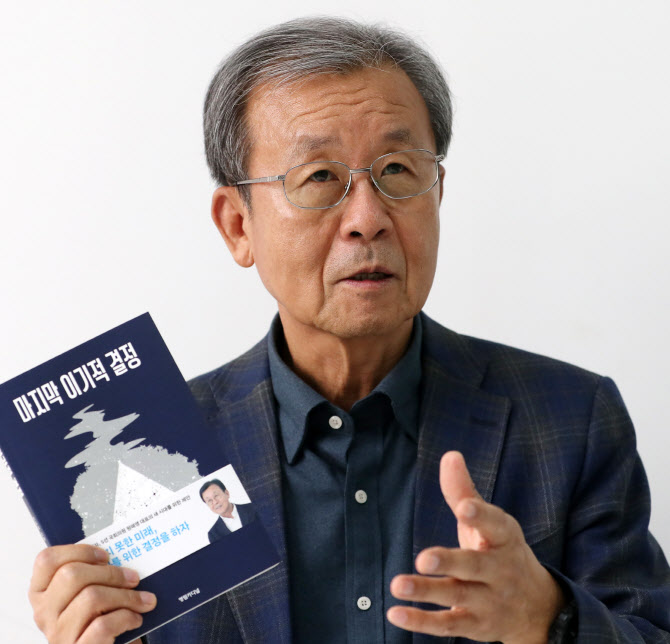So says Hye-young Won, five-term National Assembly member and Co-Chairperson of Well-Dying Culture Movement. In a recent interview with Edaily, he emphasized, “In the era of super-aging, ending one’s life with dignity has become a societal imperative,” repeatedly underscoring the importance of establishing the right to self-determination in death.
Well-dying, literally “dying well,” refers to ending life with dignity and respect. Won argues that society must see death as a natural extension of life, not as a taboo. Since retiring from politics in 2020, he has devoted himself to the well-dying movement and will speak at the Edaily Strategy Forum on June 18~19 at the Shilla Hotel in Seoul, presenting on “How to Die Well.”

Hye-young Won, a former five-term lawmaker and Co-Chairperson of Well-Dying Culture Movement, is interviewed by Edaily (Photo: Edaily Reporter Tae-hyung Kim)
According to Won, the core of well-dying is the right to self-determination in death. This means individuals should proactively and independently make decisions about life-sustaining treatment, organ donation, funeral arrangements, and inheritance.
“With the rapid pace of aging and advances in medicine, we are moving further away from natural death,” he said. “Rather than seeing death as something to fight, we should accept it as the natural completion of life and prepare for it in advance. That’s what it means to die well.” He noted that, unlike a generation ago when few had assets to leave behind, today’s seniors are the first to possess significant wealth, leading to a rise in inheritance disputes. “Choosing for oneself how to die is both the most altruistic choice for family and society and a way to reduce social confusion and national costs,” he said. This is why well-dying deserves attention not only at the personal level, but also for society and the nation.
Won’s interest in well-dying began during his time in the National Assembly, when he led the passage of the Advance Directive Act. Deeply moved by the issue of patients having to endure futile life-sustaining treatment, he championed legislation guaranteeing the right to self-determination in end-of-life care. Since the law’s enactment in 2016, more than 2.7 million people have signed advance directives, contributing to the respect for human dignity and autonomy.
◇Proposing a “Well-Dying Basic Act” for Self-Determined Death
Immediate steps, he said, include education for citizens?including seniors?and well-dying administrative services at the local government level. “Designing and implementing education for seniors is extremely important, but it’s almost neglected now. It must be actively and systematically expanded and deepened,” he said, adding that spreading the well-dying movement can reduce social costs, including the national budget. Writing advance directives or wills in advance can reduce unnecessary life-sustaining treatment, inheritance disputes, and even encourage charitable giving. In fact, if just one-third of the roughly 300,000 annual deaths avoided futile life-sustaining treatment, social costs could be reduced by 2 trillion won. He also recommends organizing one’s life with a “life note” (bucket list) or choosing personalized memorials such as living funerals or farewell parties.
Won explained, “As I contemplated retirement with the conviction that I should step aside gracefully for generational change in politics, I realized how essential the well-dying movement is for our society. Well-dying is a midterm review?an opportunity to reflect on one’s life and decide how to live the rest. The spread of the well-dying movement will help people rediscover the meaning of life and contribute to building a better society.”
As a five-term lawmaker, Won also addressed the growing problem of political polarization and extremism. “Politics should resolve confrontation and conflict, but yet it is not” he said. “Overcoming impeachment process should be a turning point, prompting politics to take its fundamental role in social integration seriously and make greater efforts.”
◇About Won Hye-young:
△Born in Bucheon, Gyeonggi Province, 1951, △Graduated from Kyungbok High School in 1970, △Founded Pulmuone Foods in 1981, △Served as National Assembly member for the 14th, 17th, 18th, 19th, and 20th terms, △Twice elected mayor of Bucheon, △Retired from politics in 2020; currently Co-Chairperson of Well-Dying Culture Movement
